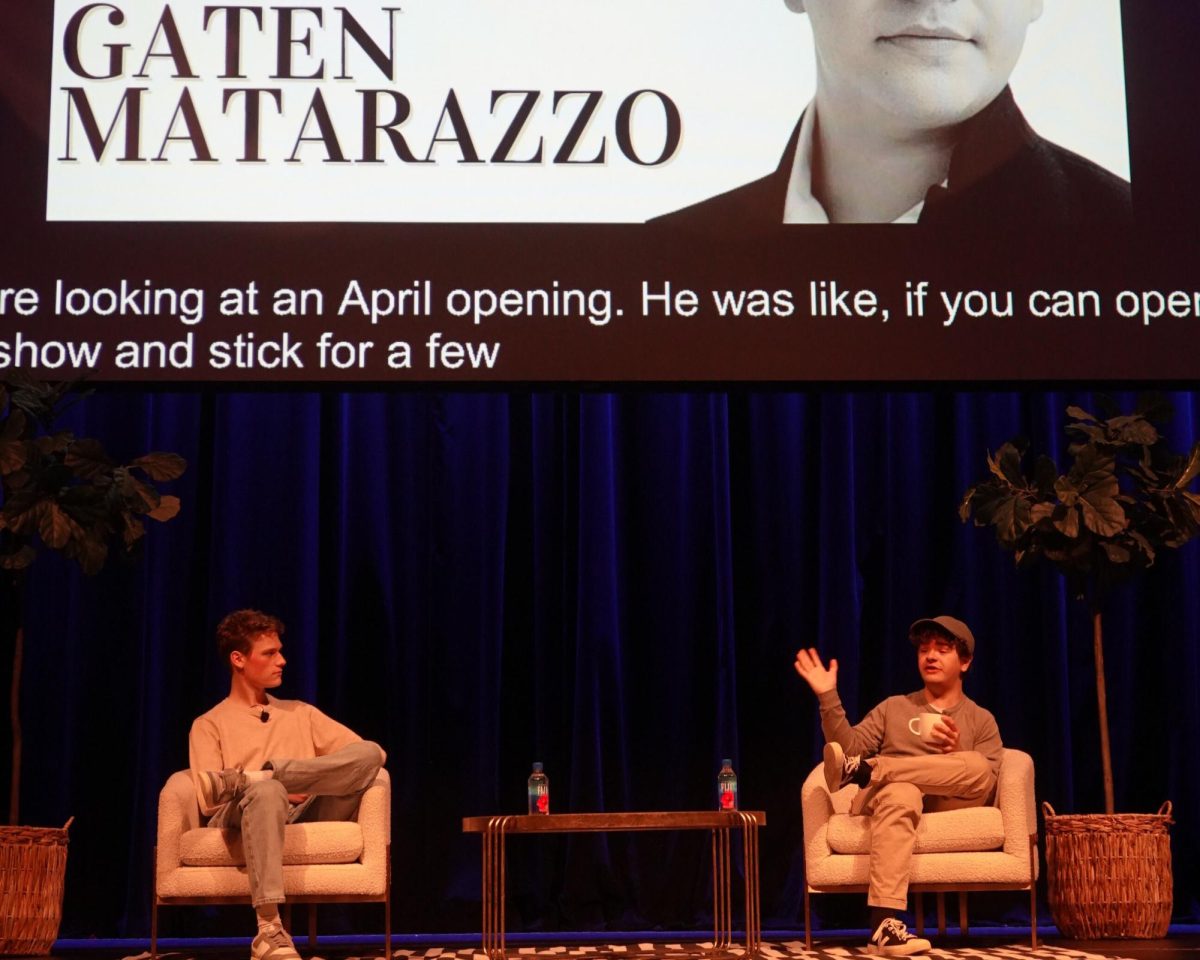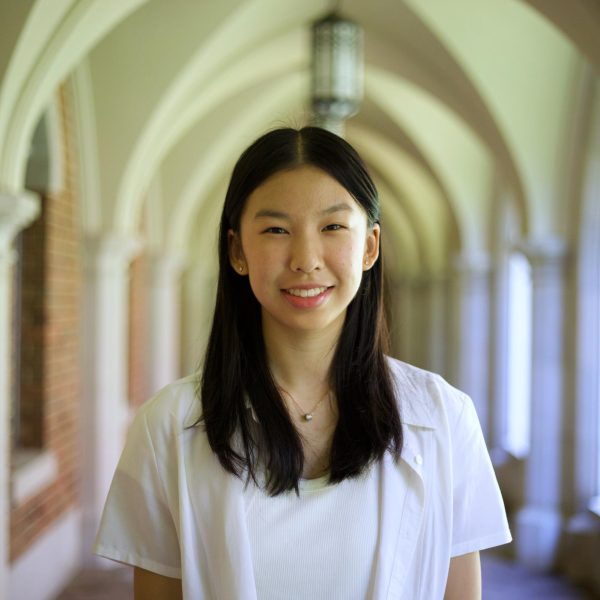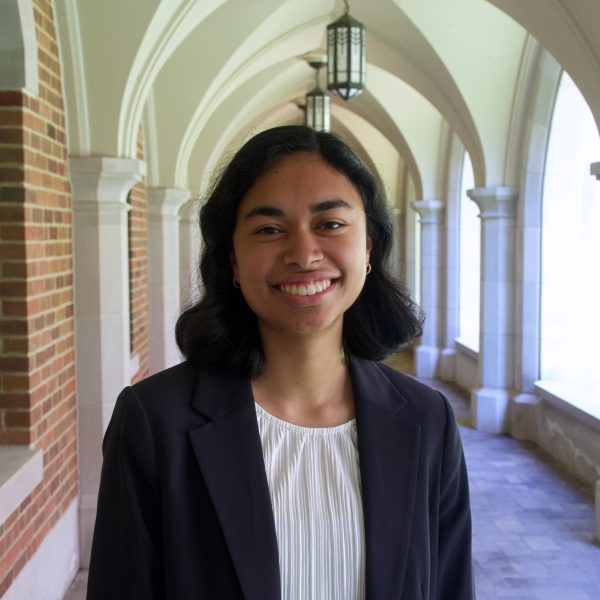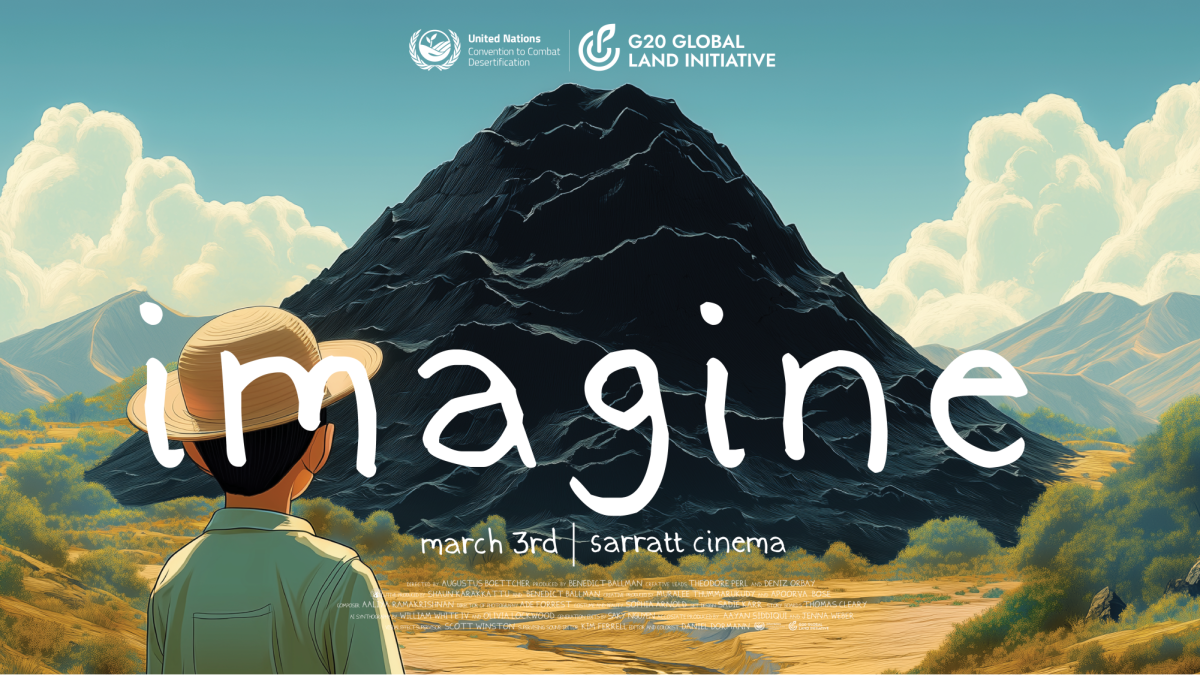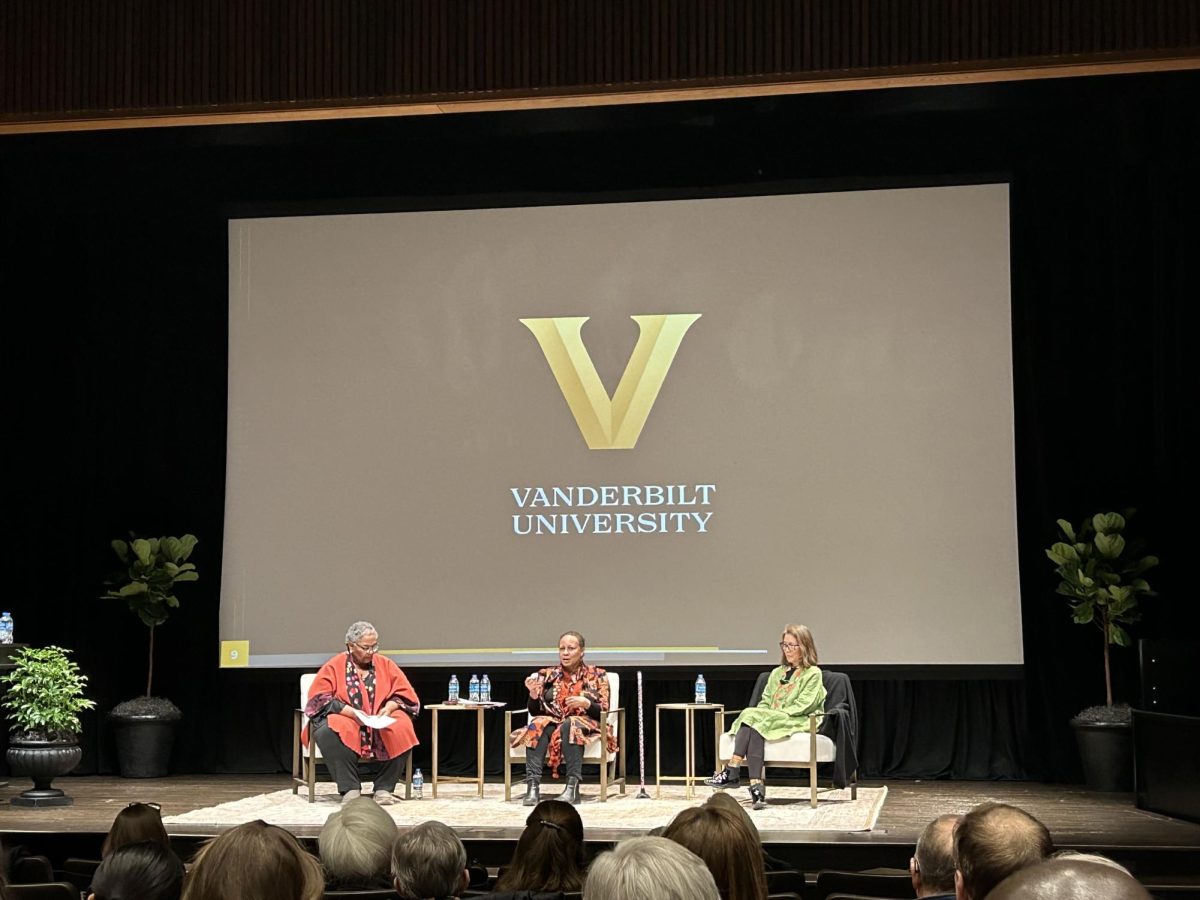Vanderbilt Programming Board hosted actor Gaten Matarazzo as part of their annual Impact Symposium in Langford Auditorium on March 21. Matarazzo is best known for his role as Dustin Henderson on Netflix’s “Stranger Things,” and he discussed his childhood lifestyle as an actor, his experience with cleidocranial dysplasia and his favorite hobbies.
Sophomore Ollie Tuff moderated the evening. The event’s structure involved Tuff saying one word and Matarazzo finishing the phrase, which formed the topic of discussion.
Balancing acting and education
Matarazzo filled the first word “Les” with “Miserables,” explaining that the Broadway show sparked his love for acting and made him consider whether he only wanted to continue with theater. However, two months later, he auditioned for “Stranger Things,” where he said he started the challenging experience of shifting from performing on stage to a television set.
Matarazzo then discussed how he would split up his week into acting, going to school and studying — all while navigating growing up. His audition process for “Stranger Things” began at the age of seven, with frequent two hour commutes from Atlantic City to New York City with his mother.
Matarazzo also reflected on how he believes most actors look back and wish they took school more seriously. When school became more difficult for him, “Stranger Things” had begun, and Matarazzo said his grades began dropping. He credited his academic recovery to his mother, who took his education seriously and threatened to stop his theatrical activities if he did not improve his grades. He said that he is now considering going to college.
Cleidocranial dysplasia
Tuff said the word “cleidocranial,” to which Matarazzo responded “dysplasia.” Matarazzo discussed his role in founding the organization CCD Smiles alongside Dr. Kelly Wosnik, which focuses on building a community and raising money for CCD research. CCD Smiles is currently working to develop a baseline treatment for CCD so physicians have a better awareness of what an appropriate plan of treatment is for someone with the condition.
Tuff asked Matarazzo what it was like having CCD during his time in entertainment. Matarazzo answered that he has always been open about it, but he acknowledged that some actors are not, which he said is understandable. Matarazzo said his parents always made him very comfortable about his condition. He shared that he would frequently showcase his “shoulder” trick, where he touched his shoulders together in front of him, to other kids in social settings, and everyone would love it. Matarazzo said that some roles, such as in “Stranger Things,” have incorporated his condition into his character, while others have not brought it up. He said that it is interesting for him to think about how his condition may have been perceived in the various social contexts of his roles. He said that he often wondered how his condition would be perceived in the 19th-century setting of the musical “Sweeney Todd” and jokingly said that people may not understand his condition because they were still bloodletting at that time.
Matarazzo reflected on how his character in “Stranger Things” having CCD helped form a strong community of people online. He said people with CCD, who typically find it hard to meet anyone else with the condition, would comment on episodes which led to the development of a growing community.
Hobbies and student reactions
Tuff then shifted to a discussion about Matarazzo’s cats. Matarazzo gave his cats Jones and Jet a shoutout and jokingly mentioned that one of them pees every time he leaves. Tuff also asked Matarazzo if he had any hobbies that he loved as much as his character Dustin loves Dungeons and Dragons in the show. Matarazzo explained that acting is the greatest love of his life, and he was able to make his hobby a living. He expressed gratitude for being able to choose what he truly enjoys early in life. He also labeled himself a “hockey freak,” discussing how his mood is frequently governed by the trajectory of the game.
The event concluded with Tuff thanking Matarazzo and the audience clapping as he exited the stage. Several students waited outside of Light Hall and took pictures with Matarazzo following the event.
Sophomore Alexandrea Howard expressed enthusiasm about the discussion.
“I had a great time! Gaten was hilarious, and it was meaningful to hear about what great work he was doing for people with CCD,” Howard said.
Sophomore Eden Teo said she enjoyed the event overall.
“I had a really good time hearing Gaten speak. He was very funny, [and he] seemed grounded and quite good with his words,” Teo said. “It wasn’t particularly insightful or eye-opening, but that wasn’t something I was looking for either.”

